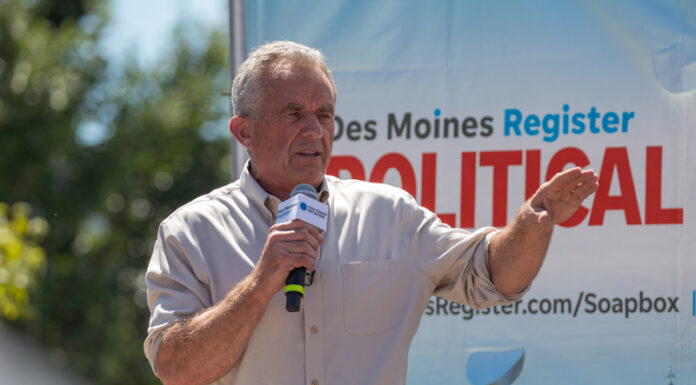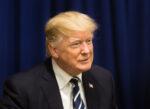President Donald Trump defended Health and Human Services Secretary Robert F. Kennedy Jr. following his contentious Senate Finance Committee testimony on September 4, 2025, telling reporters that Kennedy “means very well” despite facing harsh criticism from both parties over his vaccine policies and management of federal health agencies.
Speaking during a dinner with tech leaders at the White House on Thursday evening, Trump acknowledged he did not watch Kennedy’s testimony but indicated he heard his health secretary performed well during the three-hour hearing. The president characterized Kennedy’s vaccine skepticism as simply offering different perspectives worth considering, describing his approach as not standard but noting he appreciated Kennedy’s alternative viewpoints on health policy.
Kennedy faced withering attacks from Democratic senators and expressed concerns from several Republican committee members during his appearance before the Senate Finance Committee. The hearing marked his first congressional testimony since May 2025, when he defended massive workforce cuts at his department implemented in April.
Oregon Senator Ron Wyden, the committee’s top Democrat, described the situation as a health care calamity, citing the recent firing or resignation of most senior leadership at the Centers for Disease Control and Prevention. Multiple senators accused Kennedy of conducting an unceasing crusade against vaccines that has left families confused and scared about healthcare decisions.
The controversy stems from recent policy changes limiting COVID-19 vaccine access. On August 27, 2025, the Food and Drug Administration updated its guidance to restrict the updated COVID-19 vaccine to people aged 65 and older and individuals six months and older with underlying health conditions that increase their risk of severe illness. This represented a significant narrowing from previous policies that made vaccines readily available to most Americans regardless of age.
Kennedy defended the CDC leadership changes as absolutely necessary adjustments to restore the agency’s role as a premier public health organization focused on protecting Americans from infectious diseases. He dismissed claims that he was limiting vaccine access, asserting that everyone could still obtain vaccines despite the new restrictions.
The hearing featured several heated exchanges where Kennedy accused senators of dishonesty and making up information to frighten people. When New Hampshire Democrat Maggie Hassan claimed Kennedy was denying people vaccine access, he retorted that she was fabricating information to scare the public. Similarly, he told Minnesota Democrat Tina Smith she was being dishonest when she referenced his comments about antidepressants and school shootings.
Republican senators also expressed reservations about Kennedy’s leadership. Louisiana Senator Bill Cassidy, a physician who voted to confirm Kennedy, indicated he had grown deeply concerned about the secretary’s handling of vaccine standards since his confirmation hearings. Wyoming Senator John Barrasso, also a physician, noted similar concerns about Kennedy’s wavering stance on vaccine funding and access.
The turmoil at the CDC became a central focus of questioning. Kennedy fired CDC Director Susan Monarez on August 27, 2025, after she refused to dismiss top officials and support his vaccine policy changes during a meeting earlier that week. Four additional senior CDC officials subsequently resigned in protest.
Kennedy also replaced all 17 members of the CDC’s Advisory Committee on Immunization Practices in June 2025, installing new members who have expressed vaccine-skeptical views. This committee provides crucial guidance on vaccine recommendations that influence insurance coverage and pharmacy availability of vaccines nationwide.
During the hearing, Kennedy addressed various controversial statements from his past, including his 2021 claim that the COVID-19 vaccine was the deadliest vaccine ever made. He attempted to clarify his position by expressing support for Operation Warp Speed, Trump’s 2020 vaccine development initiative, stating the president deserved a Nobel Prize for the program.
Vice President JD Vance defended Kennedy on social media, criticizing senators who questioned the health secretary while supporting what Vance characterized as untested hormonal therapies for children. Trump reinforced his support by emphasizing his appreciation for Kennedy’s different approach to health issues, suggesting his unconventional perspectives were valuable for addressing the nation’s health challenges.
The controversy has generated broader opposition within the health community. More than 1,000 current and former HHS employees signed a letter calling for Kennedy’s resignation, while former CDC directors have publicly stated that Kennedy is endangering Americans’ health through his policy decisions.








